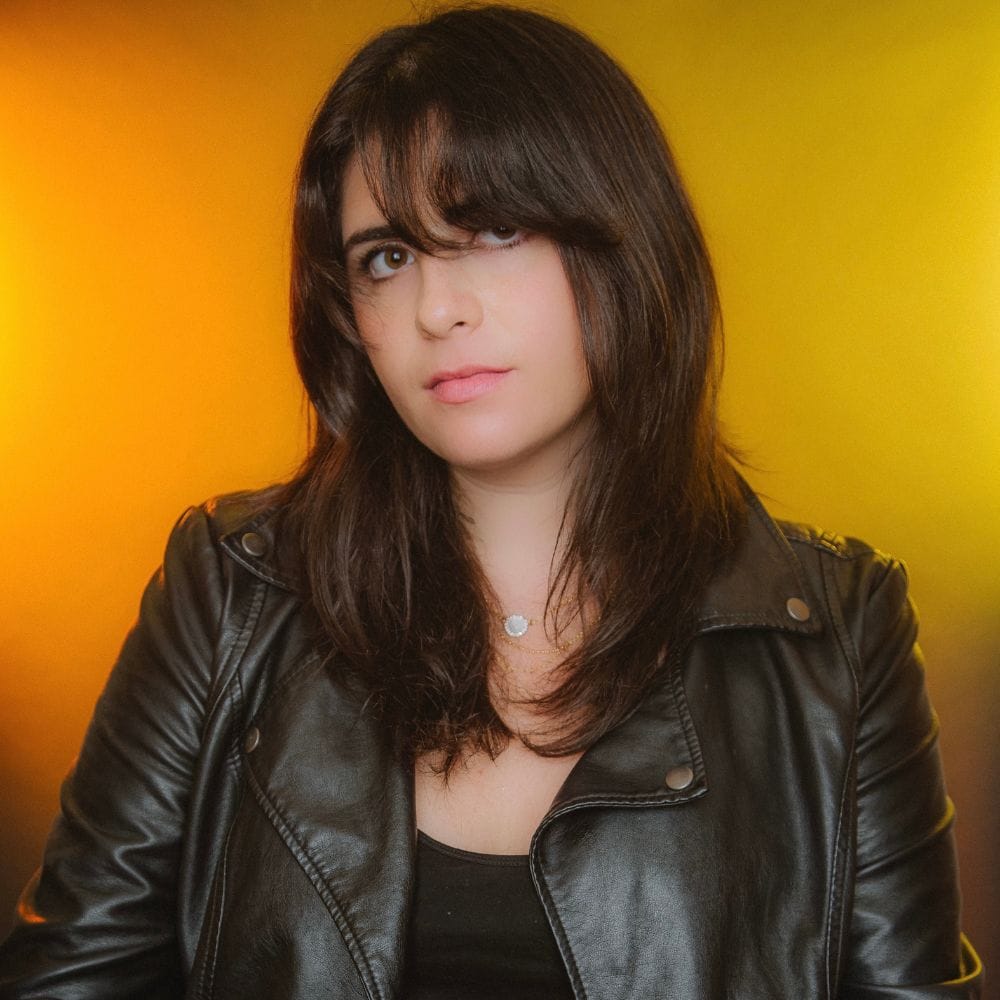Yom Kippur Abortion

SYNOPSIS
After spending most of the holiday at the abortion clinic together, Tova and Mel watch the closing service of Yom Kippur virtually. While Tova recovers from her surgical procedure, the mother and daughter pair unintentionally step into intergenerational disagreements and unresolved emotional territory.
PLAYWRIGHT’S BIO
Shira is an East Los Angeles-based writer who splits her time between LA and NYC. After earning her BA in Film and Women & Gender Studies at Muhlenberg College, she has worked in writers’ rooms for television shows across genres, on indie documentaries and in development at scripted production companies. She is a contributing writer at Lilith Magazine and a literary fellow at The Braid, where she connected with the founders of the play collective JewFace through which Yom Kippur Abortion was developed. Her work focuses on the dynamics of intergenerational trauma and resilience while exploring the impact of patriarchal systems and cultural misogyny on the lives and health of women and girls.
A BIT ABOUT THE PLAYWRIGHT
When did you start writing plays? If you had a moment where you realized you wanted to write, what was it?
I wrote my first play when I was nine years old. I went to a small school and wanted everybody in my class to see themselves in what I was writing because I loved my community. I realized I had this desire and potential to channel my observations about and admiration for each unique person in my class into a character, so that they could see themselves. I loved the catharsis, the humor of doubling down on the individual quirks of each character and watching people I cared about see themselves through my eyes. I have narrativized ideas and parts of my life to cope, dissociate or just fantasize. I’ve always just seen things play out in my head. It took me time to gain perspective and distance myself from a feeling of self-criticism to a feeling of authenticity to take my own projects seriously. I love plays that feel raw and that help me connect to a larger sense of humanity. I love stories that feel sensitively subversive, that provoke new or deeper ways of thinking, feeling, or relating to a topic or experience.
How did you come to write your OOB play? Was there a particular inspiration behind its creation? How has it developed?
I pitched it to the JewFace Collective in LA. I wanted to write a play about turning shame into liberation – I wanted to show what it could look like to leave room for compassion for the self and others by acknowledging that when we have the opportunity to make new choices after making mistakes, we have the opportunity to transform. I experienced a Yom Kippur celebration at a woman/queer led space that was all about renewal instead of shame, instead of weaponizing the idea of a judgmental god who low key hates you and is going to kill you if you make a mistake. I was thinking about how many women struggle with Complex PTSD and internalize shame and punishment, and how shame and punishment are such core principles in shaping many of the social systems we live in that we interpret them as human nature (instead of the product of centuries of Christo fascism and patriarchy). I love complicated mother-daughter stories, and I see them as exploring the interpersonal consequences of living in a society that centers ego, a false sense of individualism, takes motherhood for granted and doesn’t frame mothering or care work as work. I am proud to come from a lineage of feminists, but I wanted to depict a true struggle instead of a glorification because to see a struggle and to be able to relate to it, to say this is hard but it’s true, allows for a deeeeeep breath of self compassion. I also wanted to write about how important it is to have difficult conversations, and confess our pain to ourselves and the people who love us, even when they love us imperfectly.
What are five words that describe who you are as a playwright?
Authentic, provocative, intimate, raw, relationship-oriented.
What/who are some of the major influences on your writing?
Michaela Coel, Phoebe Waller Bridge, I was very influenced by working on SMILF as the first scripted show I got to work on. Angela Davis and Barbara Ehrenreich, The Awakening by Kate Chopin. Ming Pfeiffer’s Usual Girls, Simone DeBeauvoir, Annie Baker, bell hooks, Sylvia Plath, Paula Vogel, Annie Baker, Moira Donegan’s substack, Transparent. I’m also just gonna say that the show Girls came out at a very formative age for me.
What are some of your favorite plays?
How I Learned To Drive, What The Constitution Means To Me, 4000 Miles, Eurydice, The Heidi Chronicles, Les Mis.
